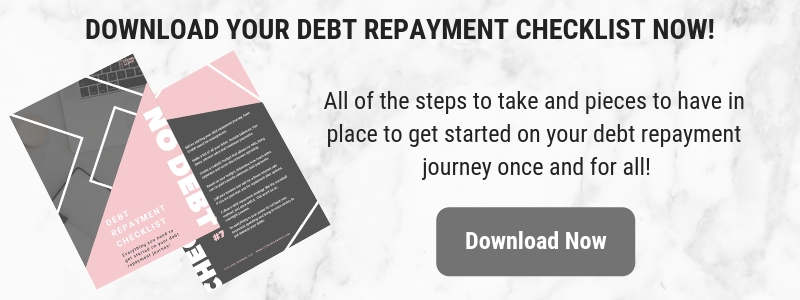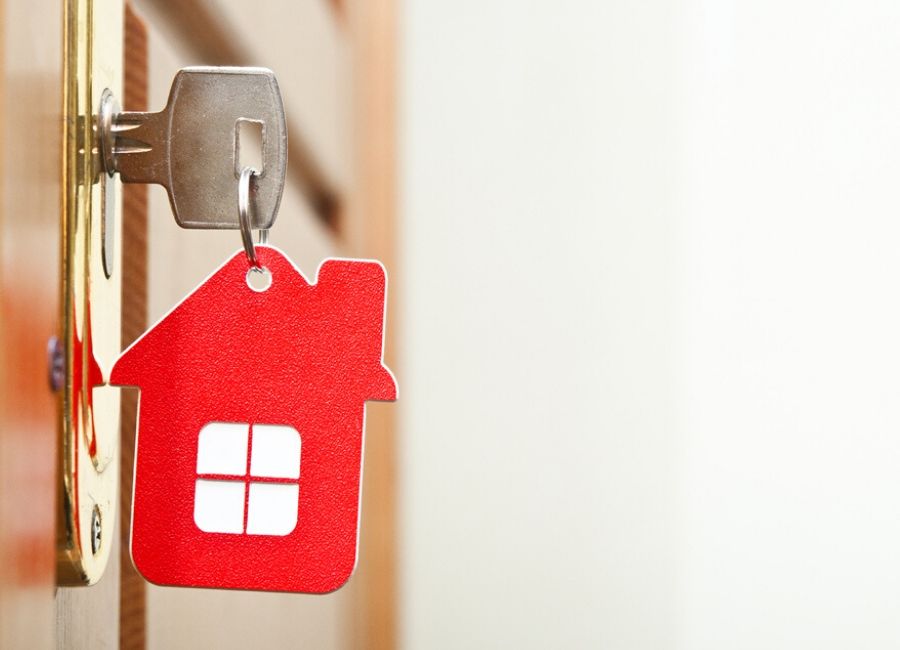For most of us, owning a home will be one of the biggest purchases of our lives. It will be our largest investment, and it will be the deciding factor of our “American Dream”. While owning a home may not be important to you now, that can easily change. If you know that owning a home is a goal you want to achieve, it’s best to put yourself in the best situation to do so, as early as possible. You can financially prepare for home ownership years in advance.
To financially prepare for home ownership doesn’t mean to prepare right when you are ready to buy a house, but before you are ready. There are certain actions and habits that can help you on your journey to owning a home. I’m going to walk you through the best steps to take to help you financially prepare for home ownership. Remember, success doesn’t happen overnight, but over time it truly can be had!
#1 Assess your situation
What does your current financial situation look like? What type of money are you bringing in? What forms of debt do you have, and what do they add up to? How does your savings look? If you can’t answer these questions, you need a budget. Even if you can answer these questions, you need a budget.
If you think you are financially ready for a home, based on your income, savings, and lack of debt, create a budget as if you were paying for a mortgage. Do some research on the average mortgage prices in your area. Now, factor that average mortgage price into your budget. See how budgeting with a mortgage works for a few months.
Is it really tight? Giving yourself a trial budget in preparation for owning a home can help you see if you truly can afford a mortgage payment. A home is a big decision, so if you can’t handle it, it’s best to know before you get one.
#2 Understand what you can afford
Your budget will tell you a lot about what you can afford or not. Make sure you leverage your budget and see what you can truly afford to spend and save. Will a mortgage take up what you currently put into savings? Will a mortgage mean you can’t go out to eat at all? You may need to see how much of a mortgage you can afford to ensure you can live comfortably with it.
There are plenty of mortgage loan calculators out on the internet. I like the one provided by Zillow when you find a home you are interested in. It breaks down what your payments (principal, interest, taxes, insurance, PMI and HOA) will be based on how much money you put down. Play around with mortgage loan calculators using your current figures for debt and savings. Will your budget allow for an affordable mortgage with your current income, savings and debts?
This is a very important step, because the reality of this situation is that you will be declined for a mortgage loan, if your situation truly shows you can’t afford it. Not only could going through that loan approval process be tedious and time consuming, it can result in a big, fat DECLINE!
Of course, that’s one way to quickly learn if you can afford a mortgage or not! If you want to go this route, try finding a mortgage company that will review your information for a pre-approval. You won’t necessarily need a house in mind to go through the pre-approval process.
You will also come out knowing what loan amount you can afford. If it’s under what you would want in a house, start making some changes. Paying down debt and saving more for a down payment can help adjust those pre-approval numbers.
#3 Searching for Property in Your Price Range
By this point, you should have a solid understand of what type of mortgage amount your budget will allow, as well as what your loan approval amount should be. Now, you can start searching for properties in this price range. What do you find? If nothing suits your needs, or the houses just aren’t up to your standards, it will be a sign that you need to make some changes to your current financial situation.
Play around with different home price ranges. Check out different neighborhoods and areas that you wouldn’t originally consider. Start expanding your knowledge of the housing market in whatever city you see yourself living in.
This knowledge will serve as a powerful tool when you are ready to start going through the loan approval process. When you find the house of your dreams, take note of the amount. You may not be able to purchase it today, but you know what your standards will cost.
#4 Start Saving/Paying Down Debt
You’ll notice that I said start saving SLASH paying down debt, that’s because if you have credit card debt, it should be wiped out or wiped down to a reasonable level before you start the loan approval process. One of the main factors that determine if you are approved for a loan or not is your debt to income ratio. That means the monthly amount you earn versus the amount of debt payments that go out monthly.
Your total debts, including your new mortgage amount, should not exceed 36% of your income. If it does, you could end up decline territory. The only way to lower that debt to income ratio is to reduce the amount of debt you have. As your debt balances go down, your monthly minimum payments will go down, and your debt to income ratio will follow.
Once all of your debts are down to a reasonable level, if not wiped out completely, you will want to start saving for your down payment. Your down payment can range anywhere from 3-20% (or more) based on the type of loan program you are approved for.
If you can save up 20% for a down payment, you can save yourself money by avoiding PMI. PMI stands for “Private Mortgage Insurance” and is basically a form of insurance required by any lender from a borrow who can’t afford to put 20% of the home price down up front.
In addition to saving for a down payment, you will also want to save for unexpected fees and costs associated with purchasing a home. Closing costs, appraisal fees and other home-buying costs can add up quickly. Those costs can be rolled into the loan, but that will increase your loan balance and your monthly payment amount.
You will also want to think about the costs for repairs and maintenance associated with your new home. I don’t know about you, but my luck goes just like this: Raya buys a beautiful home. Raya moves into that beautiful home. A week after moving into the beautiful home, the water heater goes out.
Raya has to replace the water heater. I’m not kidding, that’s my luck. I’m not bitter about it, I just prepare for such situations! Things can breakdown with a new home, and you are now the landlord! Having a savings in place for such events can make your life easier, and help you avoid using debt.
#5 Think about the Future
Owning a home is a lifelong process. It’s not a quick buy and then you don’t have to worry about it. Depending on your loan terms, you may be paying that home off for the next 30 years. I can guarantee that in the next 30 years, you will have to revamp, improve, and keep up your property. Think about how you can save for such maintenance over the long haul.
What can also happen in the next 30 years is a huge change to your financial situation. You could get married, have kids, lose your job, take care of a sick parent, or any other unexpected situation could pop up. You never want to be in a situation where you can’t make your mortgage payment.
It will result in a foreclosure after a certain number of missed payments. In fact, some states begin the foreclosure process after 3 months of missed payments. That can ruin your credit and your life. Having an emergency fund in place, ideally before you buy your home or right after, can help make sure that foreclosure is not an option for you. If you are currently going through the foreclosure process, read Foreclosure Alternatives Available to You.
Related: Saving for Your First Home
Like I mentioned earlier, buying and owning a home is one of the biggest financial decisions of your life. You don’t want to mess it up! All of the tips above can help you prepare for the financial responsibility of owning a home. Are you thinking about buying a home in the next couple of years? What are you doing now to help you get closer to owning that home? Have you owned a home in the past? Share where you currently are in the home ownership realm by leaving a comment below.
-Raya
The CGS Team







1 thought on “How to Financially Prepare for Home Ownership”
Good Morning Ladies! @nataliecaneen @rabrooks4 @mooreluv @cbnowlan @emily-casey @holaday14 @asia-franklin Is owning a home a goal of yours? Check out the article “How to Financially Prepare for Home Ownership”…you can also listen to the audio version!